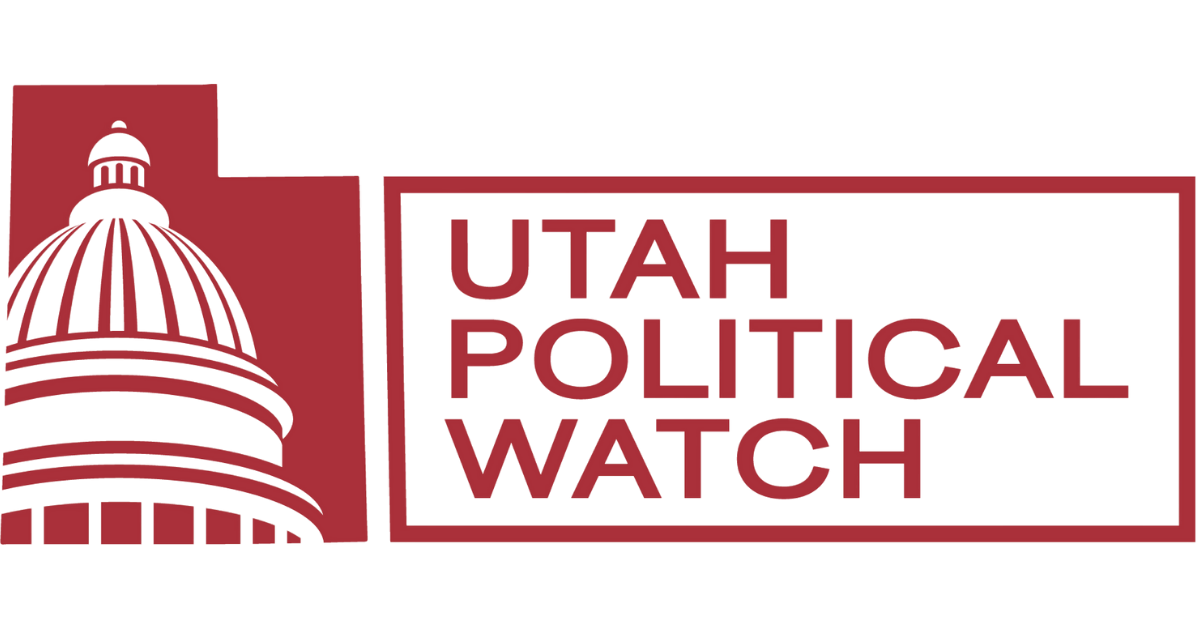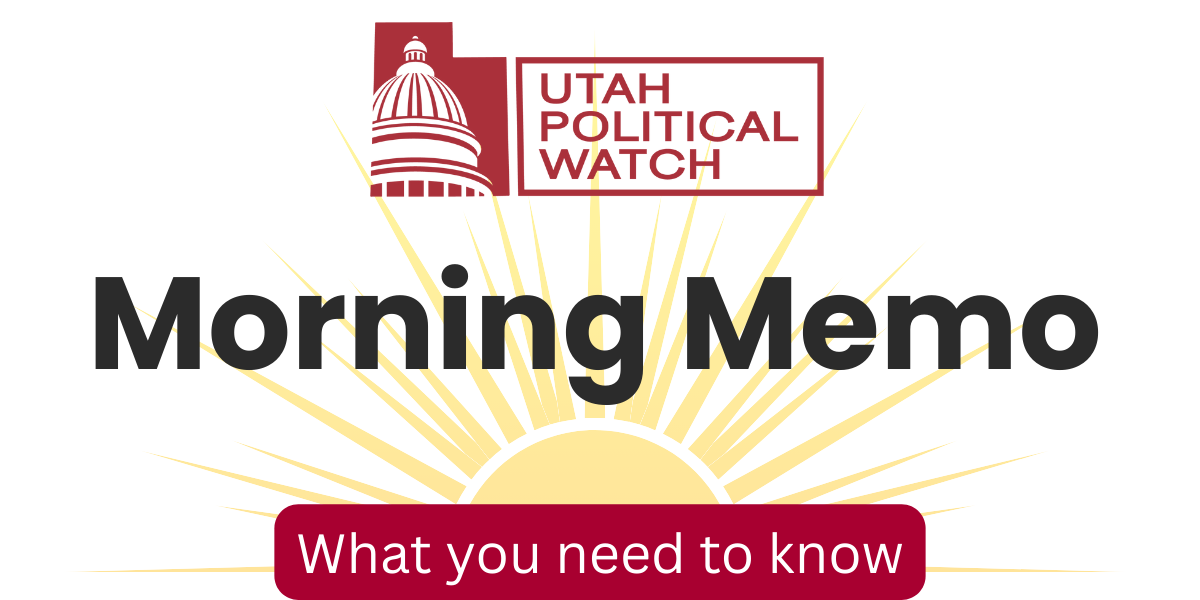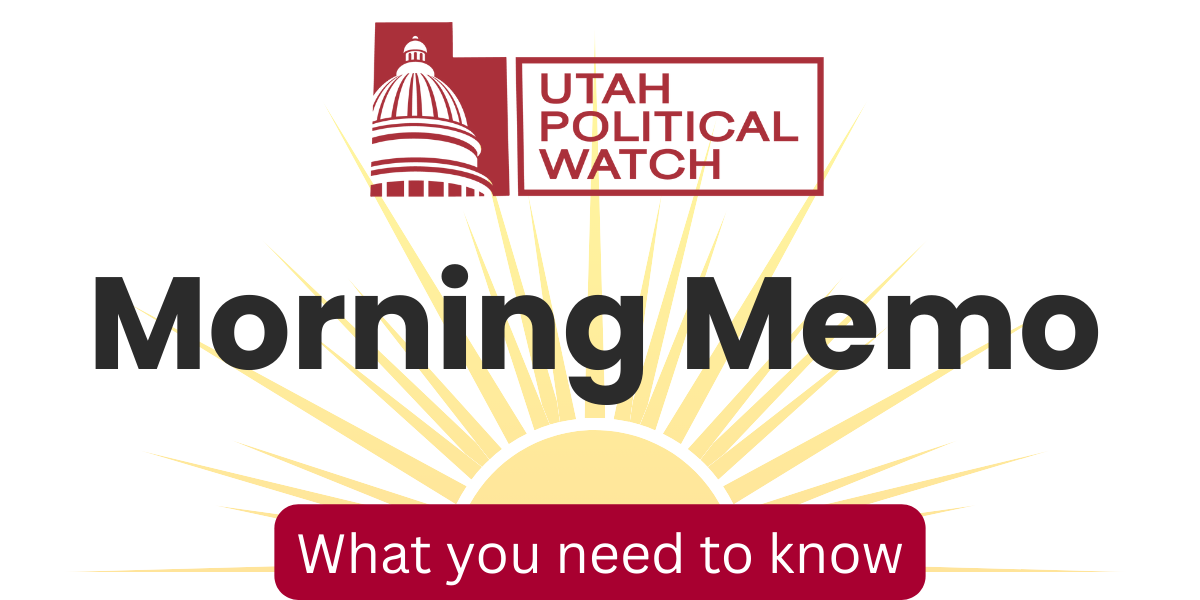What was supposed to be a routine map-drawing exercise erupted into political drama at the final meeting of Utah's Legislative Redistricting Committee, where accusations of hidden data, partisan motivations, and five-year-old social media posts overshadowed the committee’s work of redrawing the state's congressional boundaries.
The Republican majority opened with their five proposed maps, crafted under the guidance of their preferred expert, Dr. Sean Trende—a conservative political analyst who has become the go-to redistricting authority for GOP lawmakers nationwide.
Then it was time for Sen. Luz Escamilla and Rep. Doug Owens, the only Democrats on the 10-person committee, to unveil their map. To assist them, they brought in their own expert, Dr. Daniel Magleby, associate professor of political science and economics at SUNY Binghamton.
The fireworks started when Magleby complained that he had not been able to fully evaluate the majority’s map proposals because he had not been given access to the full data used by Trende to produce them.
“There are several questions about how he’s applied that methodology and what’s missing from the analysis he’s conducted or at least reported here,” Magleby said, noting that the data was finally made available publicly shortly before the hearing began.
The Republican majority on the committee has gone out of its way to adhere to Prop. 4’s exclusion of the use of any sort of political data to draw the new congressional boundaries. When Owens suggested that some sort of political consideration might be part of the data that was withheld from them, committee co-chair Sen. Scott Sandall exploded.
Owens: “We strongly suspect there was a data set incorporated into the tests that Dr. Trende applied, and we are unable to verify. It’s as if we’re told to buy a car and we can’t lift the hood and look.”
Sandall: “Representative, you just demeaned us. You demeaned us to the audience. You called us somehow hiding or lying about everything that we’ve presented to say that our maps were not developed with any political data. You just misrepresented that, and that’s out of order.”
Owens: “May I apologize and clarify, Senator? That’s not my intention. We have a suspicion that may have been done.”
Sandall: “You didn’t say you had a suspicion; you called us out.
Owens: “We strongly suspect that’s been done. I don’t think there’s knowledge on the part of any committee member. I think there’s been a formulation of a test that looks like it’s mathematically specifically representative.”
When it was the committee members' turn to ask questions, Rep. Cal Roberts flipped the perception of bias back on the Democrats, using a five-year-old X/Twitter Magleby, where he said the gerrymandered congressional map approved by lawmakers in 2021 was “straight out of the authoritarian playbook.”
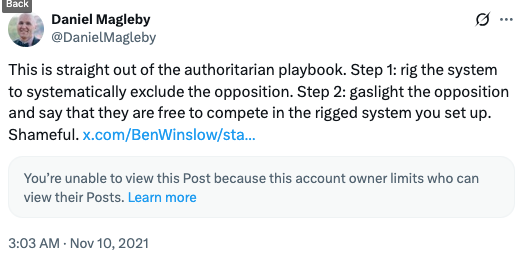
“Dr. Magleby, you’ve used the word ‘bias’ a lot, and I want to talk to you today about bias, and it’s important because we know that a biased source will yield a biased map,” Roberts said.
After reading the full social media post out loud, Roberts asked Magleby, “Do you think this legislature is authoritarian?”
After saying he did not remember the post Roberts was referring to, Magleby said he did not believe the Utah Legislature was “authoritarian.”
“I have high hopes you will do well by the people of Utah, giving them a map that represents their interests in Washington,” Magleby said.
Roberts, seemingly armed with a catalogue of Magleby's past social media activity, pressed further.
“October first, 2020, you said, ‘The system is already rigged in favor of Republicans. Democrats can make things a little better if they add (Washington) D.C., and Puerto Rico as states.’ I have to say the people of Utah are going to ask, and the media should ask, if it is your intent to use this map to rig the system in favor of Democrats.” Roberts asked.
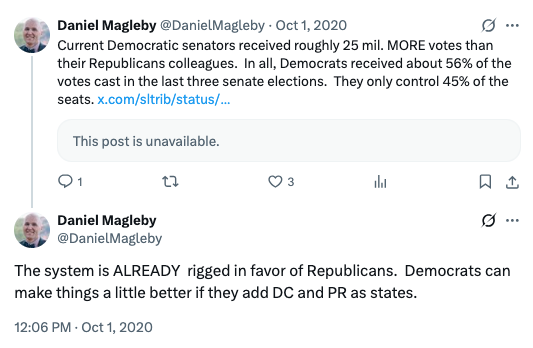
“That’s not my intention with this map, I have no intention of rigging the system,” Magleby responded.
Roberts then turned to Sen. Escamilla, asking, “Aren’t you concerned about the optics of tweets from your expert that read like a left-wing activist?”
Escamilla pushed back, pointing out that Trende, who was hired as an expert by the legislature, is typically associated with Republicans.
“I think you’re actually getting to the core of the problem, and that is we’re supposed to work as a legislature in a non-partisan way for this process,” Escamilla said. “Dr. Trende looks to me very suspicious, like Dr. Magleby looks for you. But they are experts in their areas.”
Escamilla added they were forced to hire Magleby independently from the legislature because they weren’t given the same access to Trende as the Republican majority.
A 10-day public comment period begins Thursday on all proposed maps, none of which received the committee's official recommendation. This means every map submitted to the redistricting website before Thursday could potentially be adopted when the full legislature votes during their October 6 special session.
